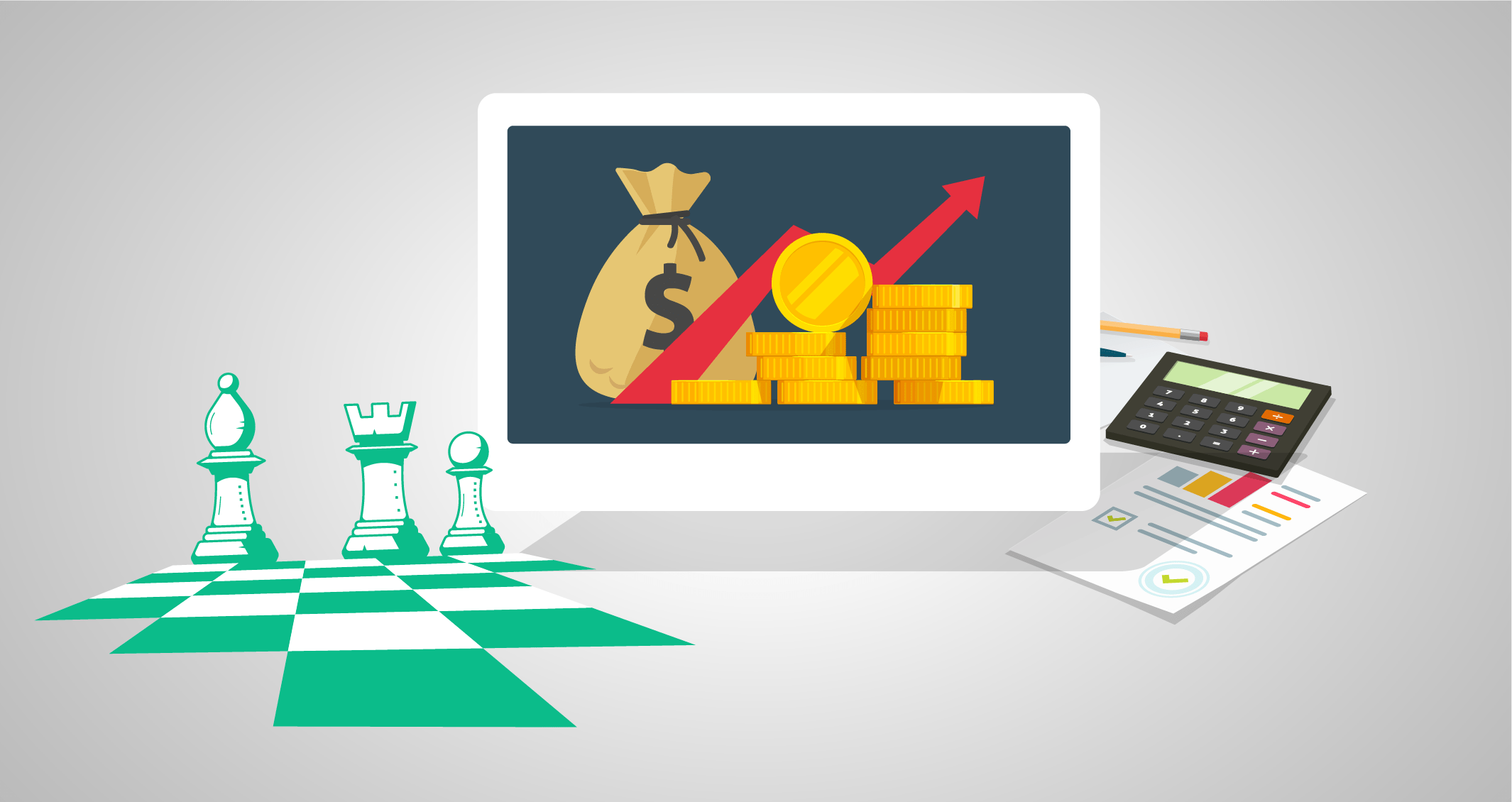Financial Lessons from a Good Game of Chess

It’s down to your last three pieces – a pawn, a bishop, and the king himself. Your opponent still has six pieces, including the versatile queen. She dashes across the board, inching towards the unprotected king. Your eyes scatter all over the board, desperately searching for a safe cover and moving the king away. That was a mistake – the queen takes the bishop.
This careless move cost you an important piece, and now only the king and pawn remain. Unfortunately, your pawn hasn’t reached the other end yet, and the king only has so many moves left before the queen catches hold of it.
So, what next? And more importantly, does this remind you of something?
While managing your finances, there are all kinds of risks looming over you. Without adequate care or knowledge, your finances are vulnerable to controllable and unpredictable risks. In terms of investments, you might come across both of them frequently. Based on your risk appetite, controllable risks are easier to dodge, but unpredictable risks are unforeseeable; it’s outside our control.
Personal Finance: It’s Not Just About Winning!
Failure is an inevitable part of life, but it also imparts crucial lessons to us. In personal finance, failure can be devastating, and people struggle to rise out of it. However, it simply highlights areas for improvement. Or, in some cases, these losses could spur you on towards success – like a game of chess!
If you lose pieces like a bishop or even the game, the game still hasn’t ended. Even after a loss, you can review the strategy previously used and make it more efficient. Next time, perhaps you could employ new strategies or rearrange the pieces to strengthen your defences. Every winning or losing round can help you become a better player. Change your perspective to view these “setbacks” as a stepping stone to success.
Monetary loss is not the end of your financial world. This is a chance to re-assess your techniques and use the loss as a springboard to becoming more financially responsible. After every loss or unfavourable turn of events, ask yourself these questions.
● Are these goals realistic?
● Will my emergency fund suffice for future crises?
● Is this really my risk appetite level?
● Do I need better financial advice?
Financial Lessons Inspired by Chess
Back in school, you might have learnt that the origin of chess dates back to the period before 600 AD. Its original name was Chaturanga, and most modern chess pieces resemble their original counterparts. However, this game has retained more than its shapes and designs – it still teaches you crucial strategies. A game that once stimulated the minds of kings can now impart financial lessons.
1. Understand the Rules
To win a game of chess, players must fully understand the rules. Without this knowledge, they may commit avoidable mistakes that could compromise the game.
Similarly, acquaint yourself with financial basics like budgeting, savings, income management, expense tracking, etc. This is the first step toward improving your financial health. For better access to this information, consult the expertise of a professional or search online for finance forums.
2. Play Your Advantages
In a game, you seek out every opportunity to take advantage. Every mistake or overlooked step by your opponent can benefit you.
The wealth you amass in your 20s will vastly differ from later stages in your lifetime. Create realistic financial goals and make adjustments along the way as your income increases. Seize every opportunity to save more and distribute it into diverse investment schemes.
3. Don’t Underestimate Anything
The humble pawn can quickly convert itself into the all-powerful queen. It wades through enemies, manoeuvring them cleverly as it reaches the other end of the board. And, just like that, it penetrates through the opponent’s defences and becomes the queen.
Viewed through a financial lens, it highlights the folly of underestimating small investments. Like the insignificant pawn that converts into the magnificent queen, the same goes for low-risk investments. So, whether you have small savings or low-risk schemes, each can be pivotal in achieving financial freedom.
4. Start Small but Big
In any chess game, the first move starts with the pawn leading the battle. The pawn creates an opening and paves the way for higher-ranking pieces.
Carefully decide the pawn or small investment you want to pick. Depending on your move, the pieces behind it can follow and take charge best to start small if new to financial management or investments. However, ensure that you remain consistent in saving a small amount each month.
When invested in the best investment schemes, the power of compounded interest will take care of the rest.
5. Always Practice Patience
To onlookers, chess may appear like a tedious game. In contrast, it’s an intense game of patience and intelligent strategies. Some of the longest chess games have lasted over twenty hours, with over 260 moves. The best players recommend a thorough analysis of moving pieces and their outcomes.
Practising a great deal of patience can pay off when it comes to your finances. Before purchasing a house, consider the present economic conditions for better interest rates. Or avoid selling off your assets during bearish periods. Developing the habit of careful consideration will expedite your advancement toward financial goals.
If you have children, this is a great way to begin teaching them crucial money lessons in a fun way. Inculcate these financial strategies into your finance practices and witness a noticeable improvement in a matter of time! With your fiscal knowledge upgraded, why not begin investing in a range of modest to high-risk investments?
Visit Bajaj MARKETS to create a diverse investment portfolio today!
